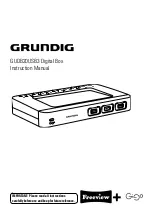
62
Programming the commands of remote controllers for other devices into
the remote controller
4. Press and hold down the button (that
corresponds to the command you are
programming) on the remote controller of the
other device until the SEND/LEARN lamp on
the remote controller flashes twice and
“SAVED” appears in the display.
After flashing twice, the SEND/LEARN indicator will light
again and “LEARN” appears in the display.
5. Repeat Steps 3 and 4 to transfer all the
commands you desire from the other remote
controller and program them to buttons on the
remote controller under the same MODE.
Repeat Steps 2 through 4 to program commands to a different
MODE (e.g., when programming from a different remote
controller).
6. Press the MODE button that you pressed in
step 2 to complete the programming.
7. Operate the newly programmed buttons to
make sure the learning function was
performed properly.
Notes:
• The remote controller codes for Onkyo compact disc players,
cassette tape decks, DVD players, and mini disc recorder have
already been programmed into buttons on the remote
controller. You may, however, use these buttons to program
the codes for other remote controllers. If you wish to restore
the Onkyo preset codes after you program new codes, you
must first erase the new codes (see page 63).
• The remote controller has 408 memory slots (8 modes x 51
buttons). Some remote controllers may have more commands
that can be remembered by the remote controller. In such
cases, it will be necessary for you to determine which
commands are more important than others.
• If no button is pressed for more than 30 seconds during the
programming, or if you perform an invalid operation during
programming, the SEND/LEARN indicator flashes three
times quickly, “ERROR” appears in the display, and the
remote controller exits the programming mode. Resume from
Step 2.
• If a failure occurs during programming, the SEND/LEARN
indicator flashes three times quickly, “NG” appears in the
display, and the remote controller exits the programming
mode. Resume from Step 3.
• If a failure occurs five times in row during programming,
“ERROR” appears in the display, and the remote controller
exits the programming mode. Resume from Step 3.
• If you try to program beyond the learning capacity of the
remote controller, the SEND/LEARN indicator flashes six
times quickly, “FULL” appears in the display, and the remote
controller exits the programming mode. Try programming
under a different MODE button.
• When you want to program a command to a button to which
you have already programmed a command, simply follow the
same procedure given and programming for that button will be
overwritten.
• The remote controller uses infrared rays to send its commands,
as do most other remote controllers. Though most remote
controller codes can be memorized by the remote controller,
be aware that some remote controllers use a system that is
quite different from the remote controller and therefore may
not be able to be programmed.
• Some remote controllers have a single button that performs
multiple functions (for example, the function may change each
time the button is pressed). If this is the case, each function
must be programmed to a separate button on the remote
controller.
• Once you have transferred the commands from the other
remote controller, refer to the instruction manual that came
with that product for instructions on how to operate that
product.
• Make sure both the remote controller and the other remote
controller have new batteries. If either of them has batteries
that are low, you may not be able to program the commands of
the other remote controller properly into the remote controller.
See page 67 for how to erase the memorized commands from all
buttons.











































